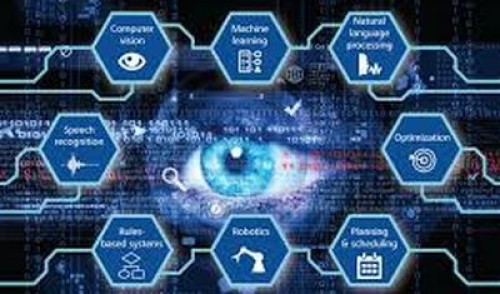New Delhi: Artificial Intelligence is going to transform businesses as companies are going to change their dynamics from a cost and customer perspective in a big way, IT major Infosys president Mohit Joshi said Thursday.
Speaking at the World Economic Forum’s online Davos Agenda Summit, he said business models are changing dramatically and companies are becoming almost completely digital.
Looking at the impact of AI in the corporate realm, Joshi also said there are issues of privacy and data security and there are changing workforce dynamics.
He said there are multiple technologies such as cloud, IoT and robotics and AI is just an umbrella and technologies are converging.
“When you look at these factors, AI is really going to transform businesses. Enterprises are going to be changing their dynamics from a cost and customer perspective quite dramatically,” he said during a panel discussion on ‘Harnessing the Fourth Industrial Revolution’.
The Fourth Industrial Revolution (4IR) technologies, driven by AI, are seen as fundamentally changing the world.
A recent global survey showed that 63 per cent of CEOs said they believe that AI will have a larger impact than the internet.
Xiao Yaqing, China’s Minister of Industry and Information Technology, said many commercial innovations stem from 4IR.
“Against the background of economic recession, I believe it is important to seize on the opportunities of the 4IR. We hope that technology will boost the upgrade of traditional industries as well as a smart revolution,” he said.
Huawei Technologies’ Deputy Chairman Ken Hu said the 4IR is a combination of innovation and technology.
“In China during the pandemic, we started to work with different hospitals to develop platforms with AI tech. Now, AI has been deployed across China. AI helped doctors to diagnose for example and the time went from 12 minutes to 2 minutes and this saved lives,” he said.
Andreas Kunze, Founder and CEO of KONUX, said AI has many benefits in managing high-risk jobs, for example by applying IoT censors.
“This helps to reduce the number of actions that have to be carried out in the field for example in the rail network, where the need for manual inspections is reduced.”
He, however, added, “We should protect privacy but we should also leverage data.”
Joshi said one issue is about bias.
“We have to make sure that data sets defy a level of bias. Explainability is another factor. Also, control over algorithms is critical,” he said.
“We want to make sure that people have control over their own data and that algorithms are driven by a level of informed consent. Having a strategy on this is very important for companies as they embark on their AI initiatives,” he added.
Hu said it is the responsibility of governments to share data but at the same time, the business community needs to step up.
PTI






































